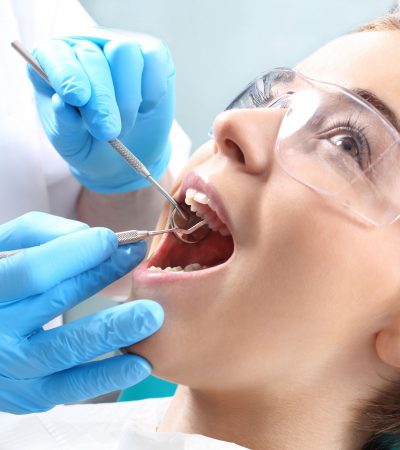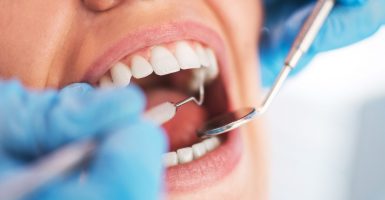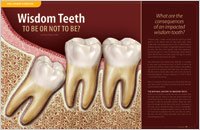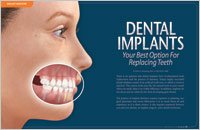Oral Surgery in Elkin, NC
Home > Oral Surgery in Elkin, NC
The term “surgery” usually inspires an image of doctors in a hospital. Oral surgery is not typically completed in a hospital setting. Instead, it is usually done in a dental office, where oral maxillofacial surgery specialists perform procedures under some form of anesthesia.
Oral surgery procedures cover a variety of ailments. Tooth extractions and implants are more common procedures, while jaw realignment and emergency surgery are less common maxillofacial procedures.
Available Oral and Maxillofacial Procedures
If you require oral surgery in Elkin, NC, our team is here to help. Oral and maxillofacial surgery can be used to improve pain, treat both infection and trauma, and restore proper function. An oral surgeon may also be able to improve a person’s appearance following injury or trauma.
If you are uncertain as to whether you need an oral surgeon, a review of possible procedures may help. The procedures and conditions treated by oral maxillofacial surgeons include:
- Tooth Extractions. Extractions are not ideal dental procedures, but they are common. From wisdom teeth that must be removed to diseased teeth that cannot be saved, tooth extractions can be important treatments used to support and maintain oral health. Overcrowded teeth may also require extraction to improve the structure and function of the jaw.
- Dental Implants. Dental implants are widely considered the best possible option for tooth replacement. Used in far more than cosmetic dentistry, implants are titanium posts screwed directly into the jaw. The post is attached to a crown after the area has healed. These replacements can last decades and provide natural-looking alternatives to standard tooth replacement options.
- Oral Bioposes and Diagnoses. Oral maxillofacial surgery specialists in Elkin, NC, can take a biopsy of a suspicious or worrisome area of the mouth to determine what is going on. A biopsy is typically used to determine whether or not cancer is present. A surgeon will remove a small piece of tissue and send it to a lab for further analysis.
- Corrective Surgery. Oral surgeons can repair jaws that do not fit together properly. Repairing damaged or faulty jaws can improve the function and appearance of an individual’s teeth and jaw.
- Sleep Apnea and Snoring. Oral maxillofacial surgeons can remove excess tissue in the back of the throat to reduce the symptoms of sleep apnea and improve snoring.
- Temporomandibular Disorders or TMD. Jaw disorders can cause a great deal of pain and discomfort. Surgeons often step in for more invasive treatment measures when conservative dental interventions are unsuccessful.
- Reconstructive Surgery. Trauma and injury can negatively impact an individual’s ability to function in daily life. Eating and speaking can both experience a substantial decline after injury. Self-esteem can also decline. Reconstructive surgery can restore function and appearance successfully.
- Repair to a Cleft Lip and Palate. Cleft lip and palates are among the most common conditions to affect children in North America. Oral and maxillofacial surgeons can repair the cleft and children can go on to lead healthy lives.

What to Expect from an Oral Surgeon

X-rays are the first step in any oral surgery procedure. X-rays are used to diagnose the issue and construct a treatment plan. The oral surgeon performing the procedure will go over the treatment procedure and all available anesthesia options.
Recovery will depend on the exact procedure being performed and the health of the patient in question. Oral surgeons take a thorough medical history, which includes all current medications (including over the counter medications), chronic health conditions, and alcohol, drug, and nicotine use.
Providing a complete and honest medical history ensures patients’ safety and comfort during oral surgery procedures.
Continued Reading
Wisdom teeth usually break through or present between the ages of 17 and 25. They can cause significant issues when there is not enough room for teeth to grow all the way. Should wisdom teeth be kept or removed?
The term “Temporomandibular Disorder” (TMD) is used to describe numerous different conditions affecting the joints of the jaw. Before seeking TMD relief, it is important to evaluate all possible and appropriate treatment options.
Dental implants are widely considered the best tooth replacement option. Dental implants are strong and durable and outlast many of the standard replacement options.
Dentistry You Can Trust for the Whole Family
Testimonials




















